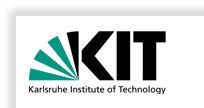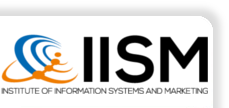| Prerequisites | None. |
| Description | Doing marketing abroad creates a number of significant new challenges for firms. This class is intended to prepare you for meeting these challenges. In the first session, we will discuss the peculiarities of international marketing. The next five sessions will then be dedicated to methods that can be used to address them. For instance, we will look at the following issues:
In the final session, we will apply this knowledge to the case of Wal Mart. In particular, Wal Mart, despite being the largest retailing company worldwide, failed to successfully enter the German Market. We will discuss Wal Mart’s failure using the methods taught in the weeks before. |
| Bibliography | Homburg, Christian (2012), Marketingmanagement, 4. Aufl., Wiesbaden. |
| Content of teaching | Doing marketing abroad creates a number of significant new challenges for firms. This class is intended to prepare you for meeting these challenges. In the first session, we will discuss the peculiarities of international marketing. The next five sessions will then be dedicated to methods that can be used to address them. For instance, we will look at the following issues:
In the final session, we will apply this knowledge to the case of Wal Mart. In particular, Wal Mart, despite being the largest retailing company worldwide, failed to successfully enter the German Market. We will discuss Wal Mart's failure using the methods taught in the weeks before. |
| Annotation | For further information please contact Marketing & Sales Research Group (marketing.iism.kit.edu). |
| Workload | The total workload for this course is approximately 45.0 hours. For further information see German version. |
| Aim | Students
|
| Exam description | The assessment consists of a written exam (60 minutes) (following §4(2), 1 of the examination regulation). |
International Marketing
| type: | Vorlesung (V) | ||
|---|---|---|---|
| semester: | WS 16/17 | ||
| time: | 2016-10-18 09:45 - 11:15 wöchentlich 10.81 Engesser-Hörsaal (HS93) 10.81 Bauingenieure, Altes Bauingenieurgebäude 2016-10-26 09:45 - 11:15 täglich 20.30 SR 1.067 20.30 Kollegiengebäude Mathematik, Englerstr. 2 2016-11-08 09:45 - 11:15 wöchentlich 10.81 Engesser-Hörsaal (HS93) 10.81 Bauingenieure, Altes Bauingenieurgebäude 2016-11-15 09:45 - 11:15 wöchentlich 10.81 Engesser-Hörsaal (HS93) 10.81 Bauingenieure, Altes Bauingenieurgebäude 2016-11-22 09:45 - 11:15 wöchentlich 10.81 Engesser-Hörsaal (HS93) 10.81 Bauingenieure, Altes Bauingenieurgebäude 2016-11-29 09:45 - 11:15 wöchentlich 10.81 Engesser-Hörsaal (HS93) 10.81 Bauingenieure, Altes Bauingenieurgebäude 2016-12-06 09:45 - 11:15 wöchentlich 10.81 Engesser-Hörsaal (HS93) 10.81 Bauingenieure, Altes Bauingenieurgebäude 2016-12-13 09:45 - 11:15 wöchentlich 10.81 Engesser-Hörsaal (HS93) 10.81 Bauingenieure, Altes Bauingenieurgebäude |
||
| lecturer: | Sven Feurer | ||
| sws: | 1 | ||
| lv-no.: | <a target="lvn" href="https://campus.studium.kit.edu/events/_QXl6pfhwkWZjF_AM9moGA">2572155</a> | ||


